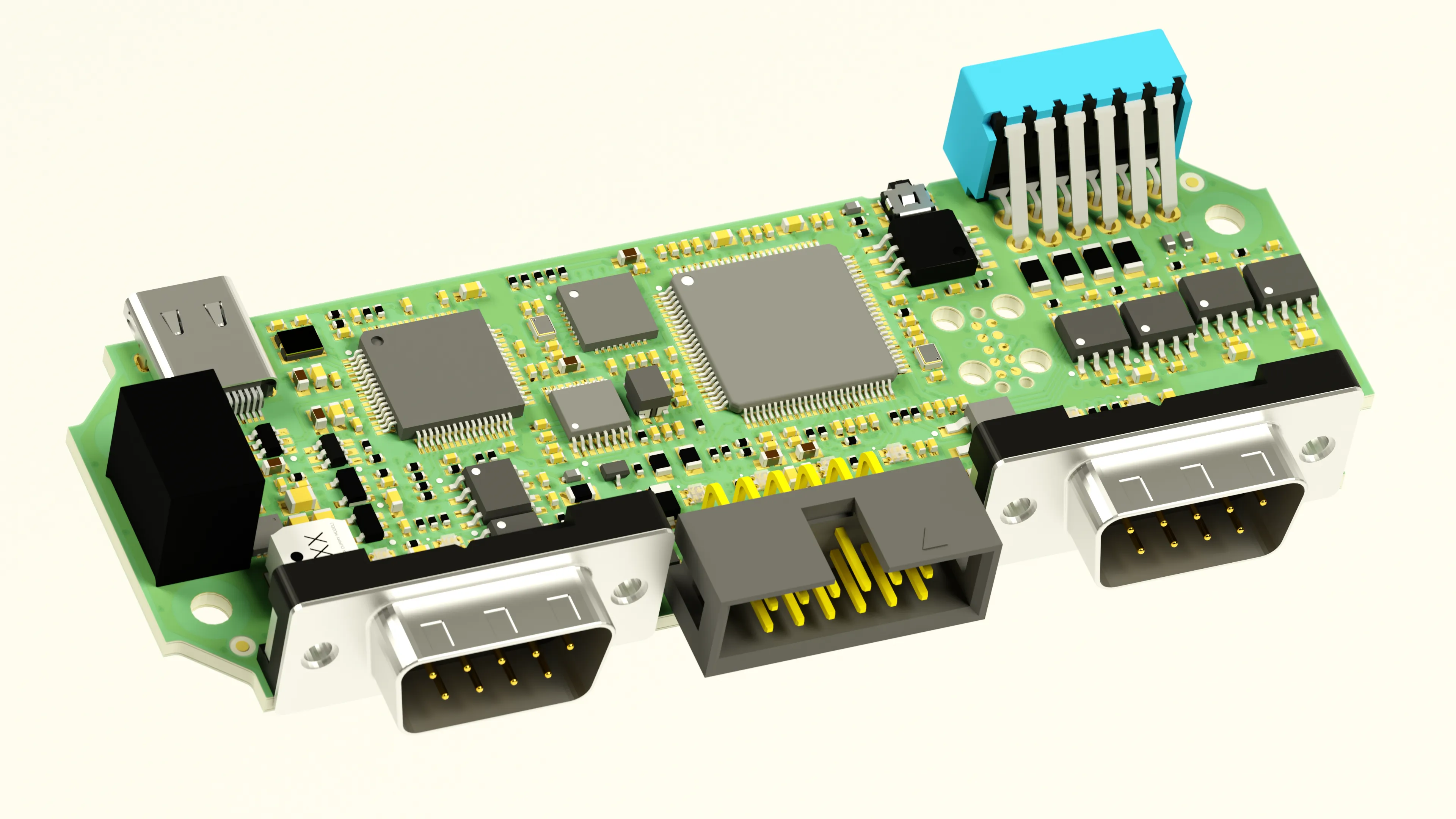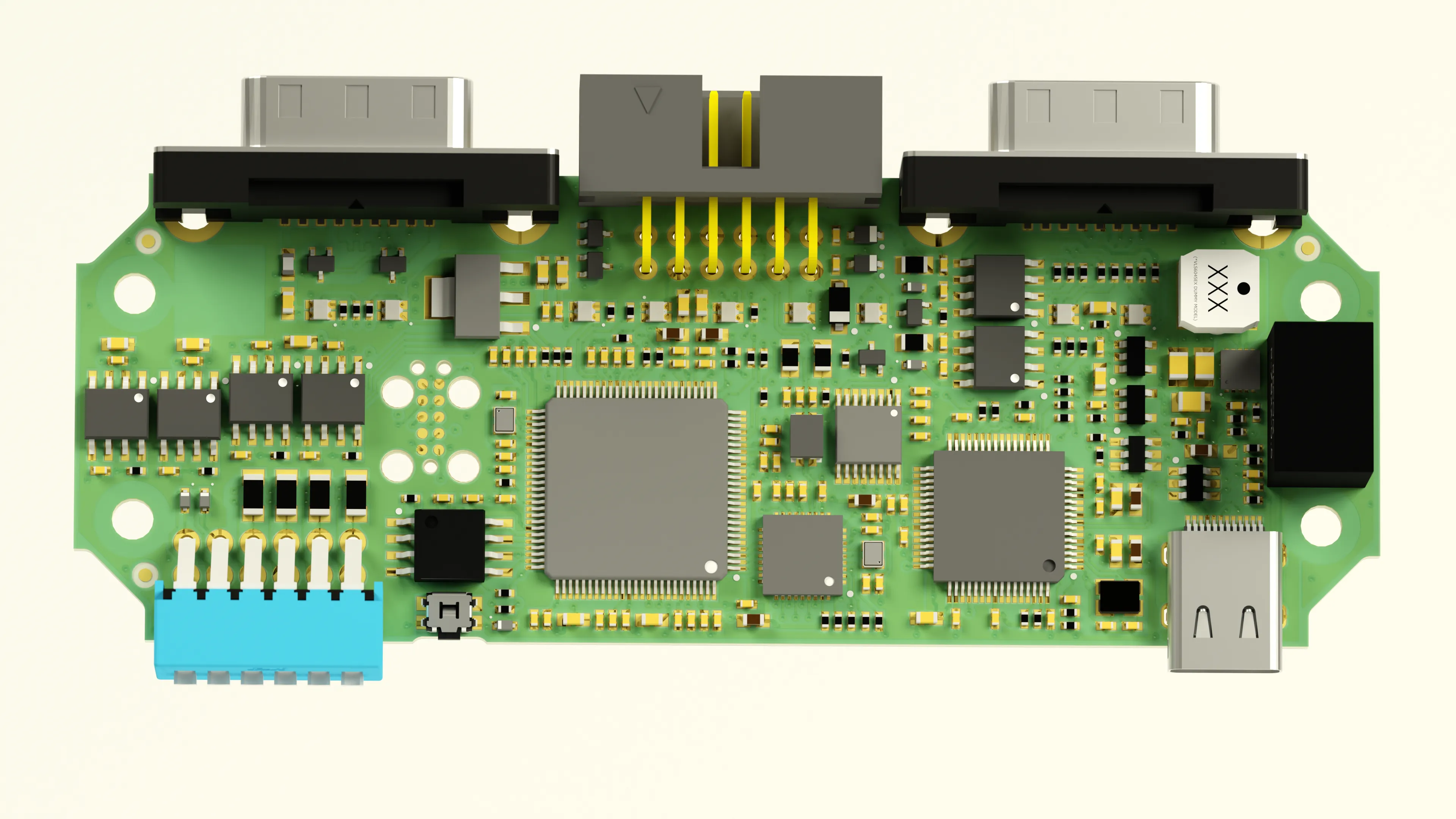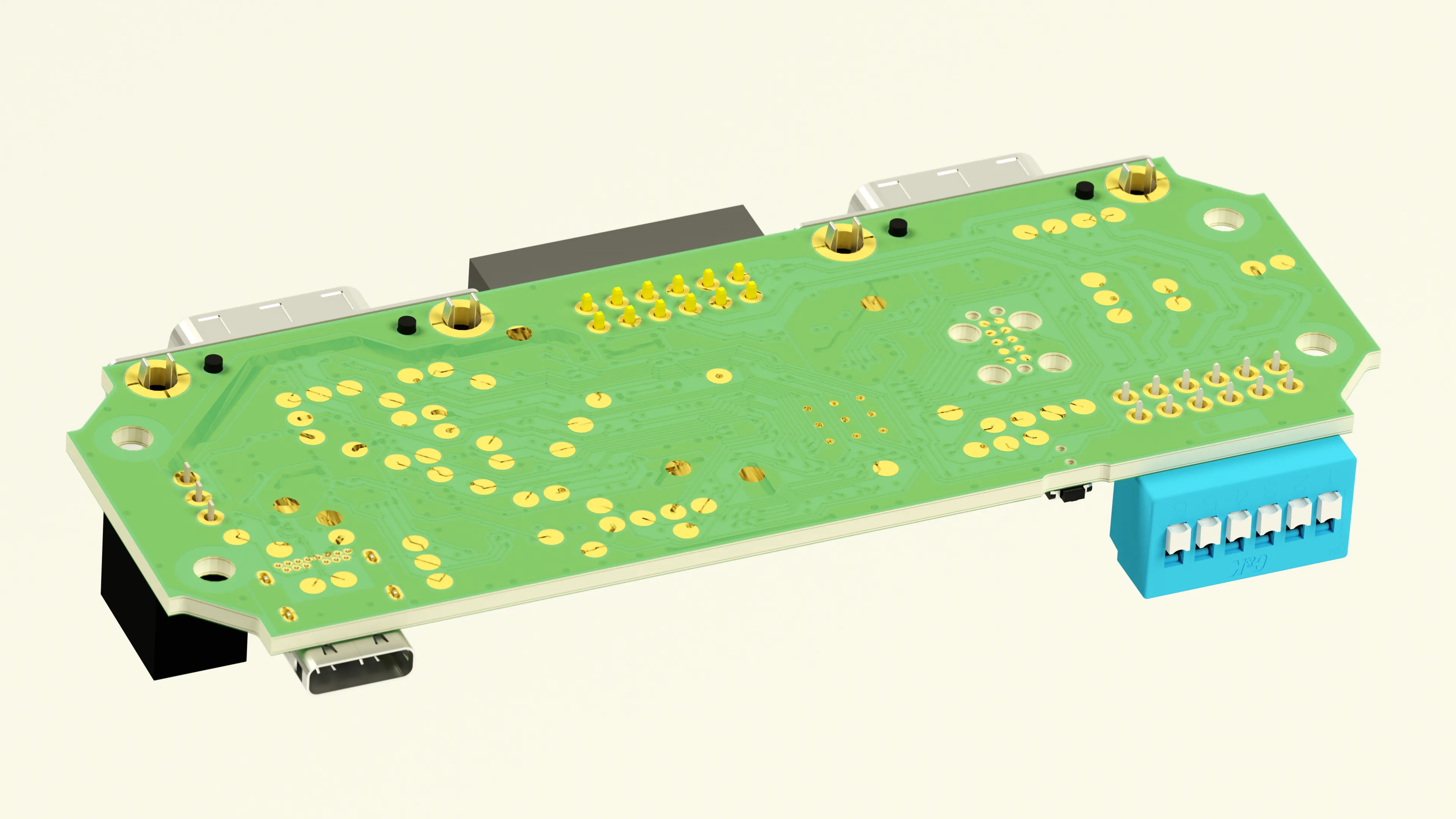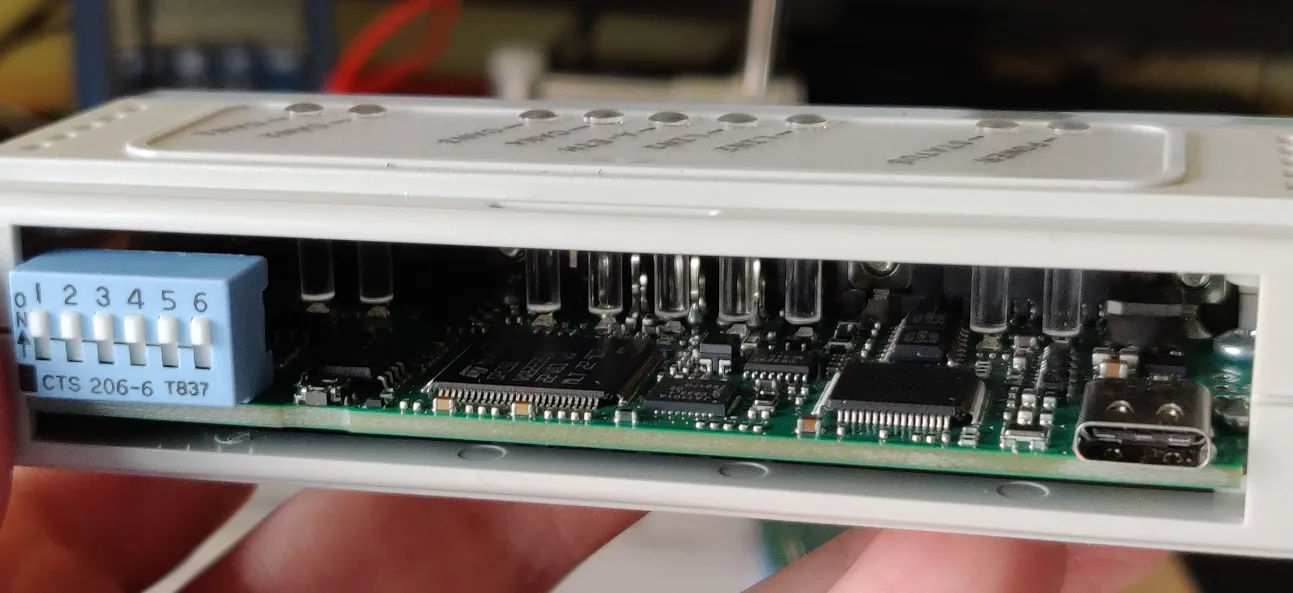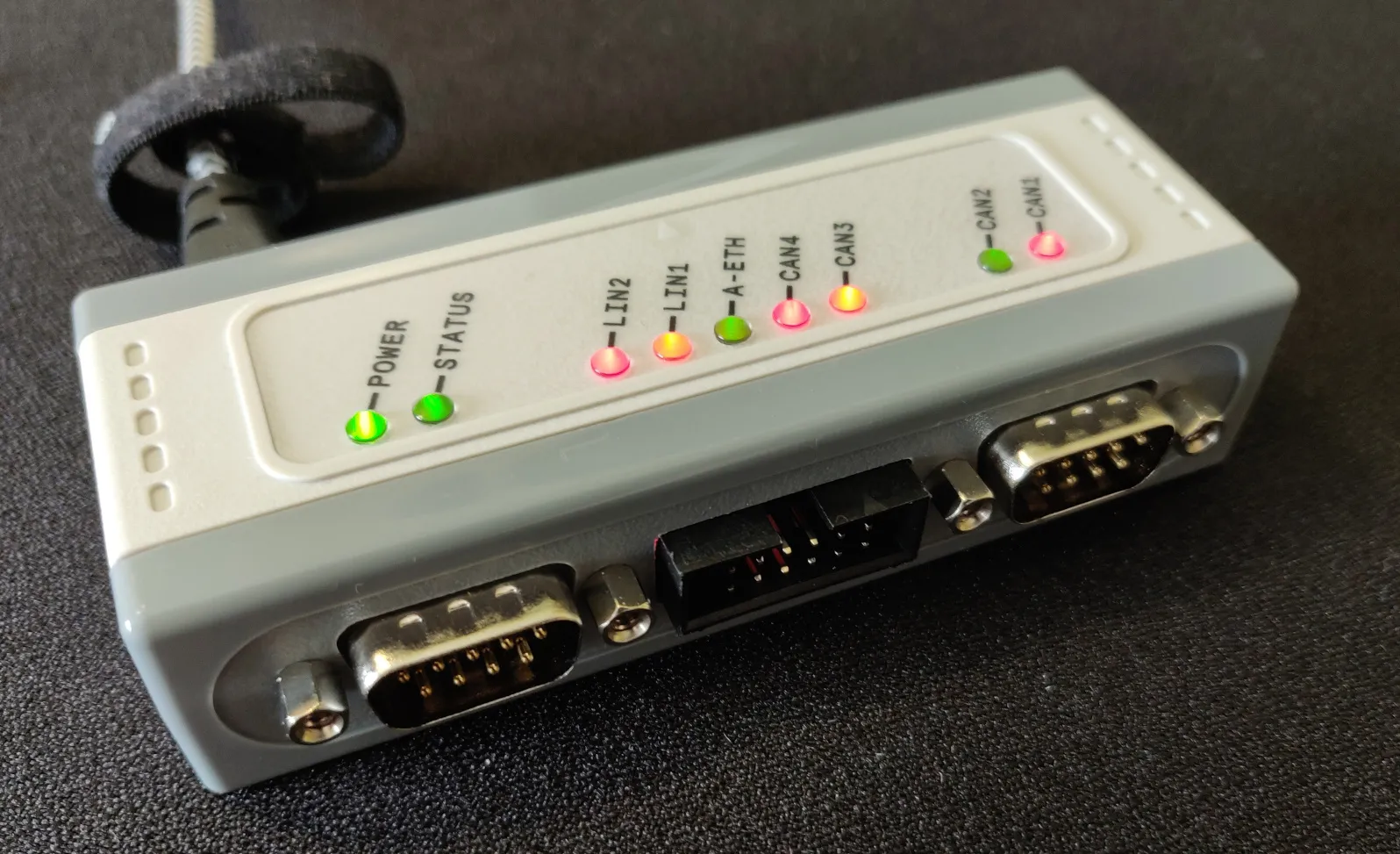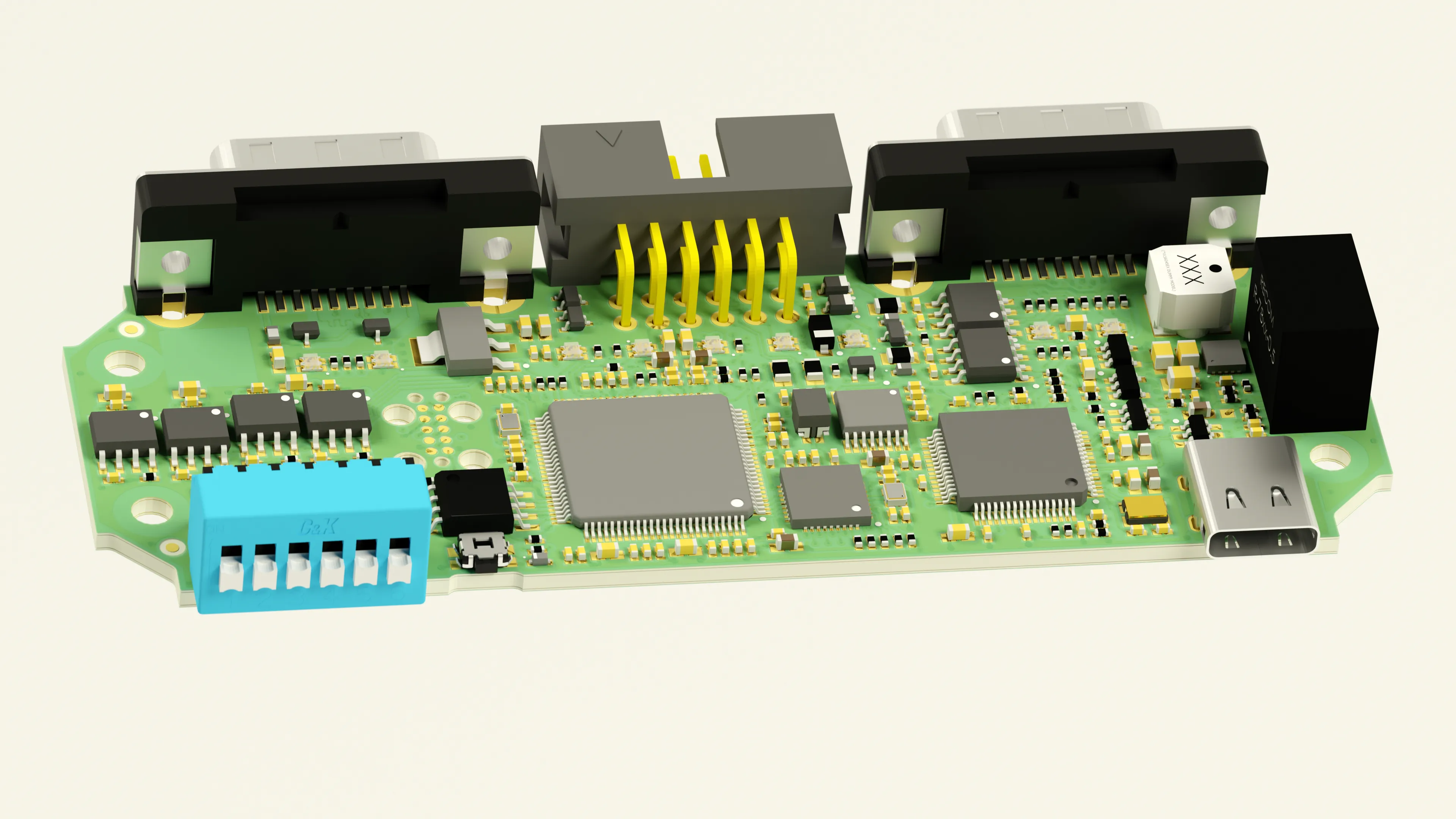
Overview
The USB-to-Vehicle Bus Adapter is a versatile debugging, calibration, and Hardware-in-the-Loop (HIL) tool designed for vehicle bus analysis, ECU diagnostics, calibration, and test automation. Depending on the firmware configuration, the device can:
- Monitor and analyze bus activities in real-time
- Diagnose and calibrate ECUs
- Update ECUs’ firmware
- Emulate test stimuli or mock missing ECUs
For HIL use cases, a specialized assembly variant operates without a USB connection, drawing power directly from the vehicle or test rig.
Key Features
- USB High-Speed (480 Mbit/s)
- 4x CAN/CAN-FD interfaces (up to 8 Mbit/s)
- 2x LIN ports:
- LIN1: Master/Slave
- LIN2: Master-only
- 1x 100BASE-T1 Automotive Ethernet port (100 Mbit/s single-pair Ethernet)
- 2x RS-232 interfaces
- Switchable CAN terminators
My Contribution to the Project
- Requirements Engineering
- Architecture Development
- Schematics and PCB Design in Altium Nexus (an Altium Designer-based PLM)
- Design for Manufacturing (DFM) and industrialization
- Bring-up firmware development
- Device Bring-up and validation
- Python scripts and GUI tool for End-of-Line (EoL) testing
Product Images

